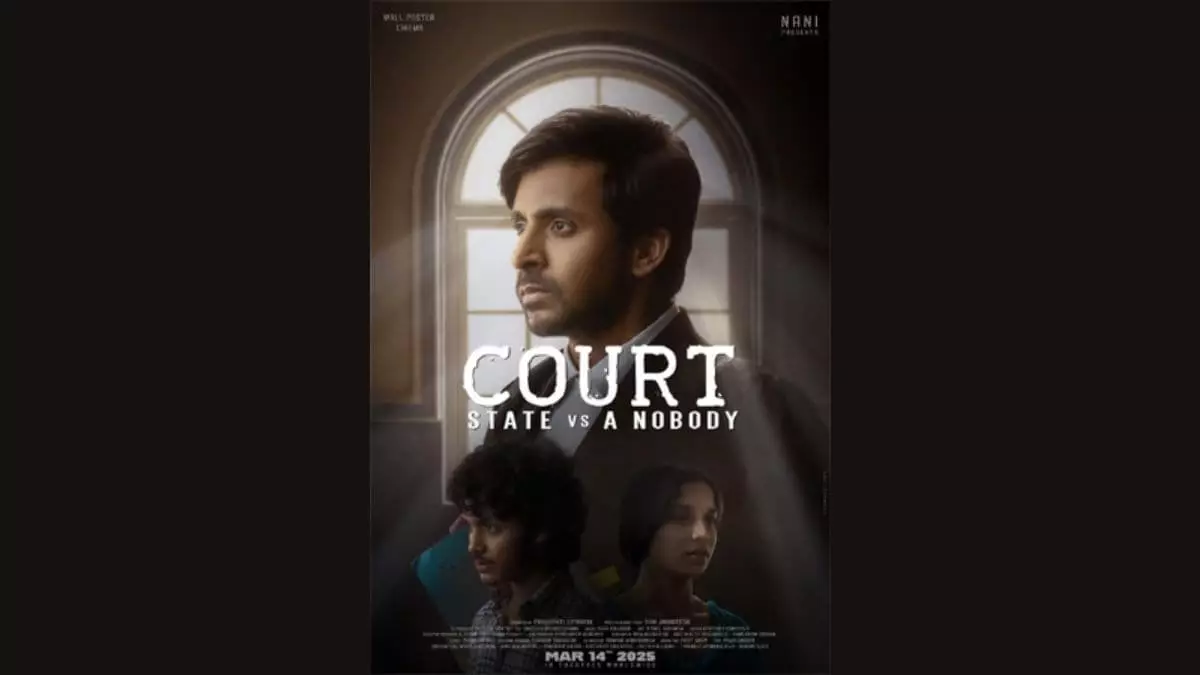The cinematic landscape of India is often flooded with forgettable content, but “Court – State vs. A Nobody” emerges boldly from the fog, driven by a compelling narrative that intersections the harsh realities of the POCSO Act with the tragic fate of an innocent man. Directed by the promising debutant Ram Jagadeesh, this film isn’t just another courtroom drama; it’s a mirror reflecting the complexity of societal norms and legal loopholes. With actor Nani lending his weight as a presenter, expectations from the film have been critically elevated, a gamble that seems to be paying off.
Powerful Performances Illuminate the Screen
At the heart of this riveting story lies a diverse ensemble cast, including Harsh Roshan and Sridevi Appala, whose performances breathe life into an otherwise grim narrative. Harsh Roshan embodies Chandu, the college dropout wrongfully accused and caught in a web of social prejudices. With an Uncle who takes malicious advantage of the POCSO Act, we witness the brutality of manipulation. The nuanced performances of seasoned actors like Sivaji, who steps out of typecast roles into the dark realm of the antagonist, highlight the film’s versatility in casting and acting prowess.
A Narration that Dares to Challenge Norms
What stands out significantly is how the film tackles sensitive topics without flinching. The manipulation of legal frameworks to serve personal grudges reflects an unsettling truth about our judicial system. Chandu, facing societal disdain and familial isolation, symbolizes countless individuals caught in similar harrowing predicaments. These real-world stakes ground the movie, making it a necessary conversation starter in today’s era where judicial integrity is increasingly questioned. One might argue, however, that while it sets the stage for courtroom confrontations, it sometimes glosses over the more intricate details of litigative processes, opting instead for dramatized encounters.
A Meaningful Soundtrack and Cohesive Production
The music composed by Vijay Bulganin adds a rich layer to the storytelling experience, complementing the emotional beats of the narrative. Critics have praised the production values, highlighting how every aspect, from the cinematography to the screenplay, combines seamlessly to create an engaging atmosphere that both informs and captivates. The involvement of producers like Prashanti Tipirneni indicates a commitment to quality, as they recognize the inherent risks and creative concessions involved in presenting such complex material.
Digital Reach: A Step Forward or a Compromise?
Netflix has secured the post-theatrical streaming rights for ₹8 crore—an impressive deal that, while beneficial, raises questions about the sustainability of small-budget films in a competitive market driven by digital consumption. The strategic acquisition could introduce the film to a broader audience, yet it could also lead to the dilution of film quality in the relentless pursuit of financial viability. It is a double-edged sword; we must wonder if aspiring filmmakers will prioritize marketable content over artistic integrity due to pressures from streaming platforms.
Overall, “Court – State vs. A Nobody” presents an important critique within the framework of the Indian legal system while also engaging the audience through emotional depth and engaging storytelling. Its upcoming release is a noteworthy event; as audiences step into theaters, they’re not just witnessing a spectacle but rather engaging in a vital dialogue about justice, resilience, and the ramifications of cultural ideology.


Leave a Reply